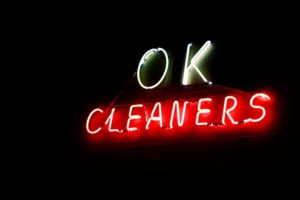 Here at Business Unplugged, we’re all about helping you grow your business. Unfortunately, things don’t always work out the way you planned.
Here at Business Unplugged, we’re all about helping you grow your business. Unfortunately, things don’t always work out the way you planned.
In a recent post on the CorpNet blog, “Closing a Business Checklist: Ten Steps From Our Experts,” Carol walks you through what you need to consider so you stay in compliance, and hopefully are able to recoup some of your investment. Carol begins:
All businesses go through ups and downs, and many will suffer cash flow crises. After some tough times, you may be tempted to walk away from your business – but closing down a business is not a decision that you should make in a fit of frustration.
Starting a business is so exciting, but the day-to-day grind of running a small business can wear down even the most intrepid entrepreneur.
That said, if you decide this path is the right decision, here is a comprehensive closing a business checklist that will highlight some of the big issues that you will need to work through.
Ten Steps to Closing Down a Business
1. Evaluate Your Decision
Take some time and get distance and perspective. What’s really going on? Can you solicit the help of your customers and raving fans to get you through this difficult patch?
Do you have some product or service that you could sell at a discount to bring in quick cash?
Are you having difficulty paying your vendors on time? Can you negotiate more favorable terms and take a little of the heat off?
Make sure that you have tried everything to fix things so that you don’t have any regrets if you do decide to walk away. Closing a business is very stressful personally and financially.
Doug Nohe is a small business consultant, strategist, advisor and serial entrepreneur. He cautions:
“When making the decision to close your business, ensure that you have considered every other alternative first. There is nothing worse than looking back after you close and realizing you have regrets because you made the wrong long-term decision due to short-term issues.”
2. Seek Wise Counsel
If you’re closing down a business, you could also well be in financial distress. You may think you can’t afford to hire a lawyer, but you probably will need to. And, there are free resources that can help, as well.
Nohe advises:
“Don’t make this decision alone, consult with other business owners and advisors to ensure that there is no other alternative. Meet with a mentor from an organization like SCORE to get free advice about different options you can try that may save the business. If closing is the right decision, advisors also can help you to understand all of the legal, financial and personal requirements for doing so.”
Regarding attorneys, you will most likely want to consider one who has a specialty in negotiating debt – or even bankruptcy.
You can read the rest of the post here.

